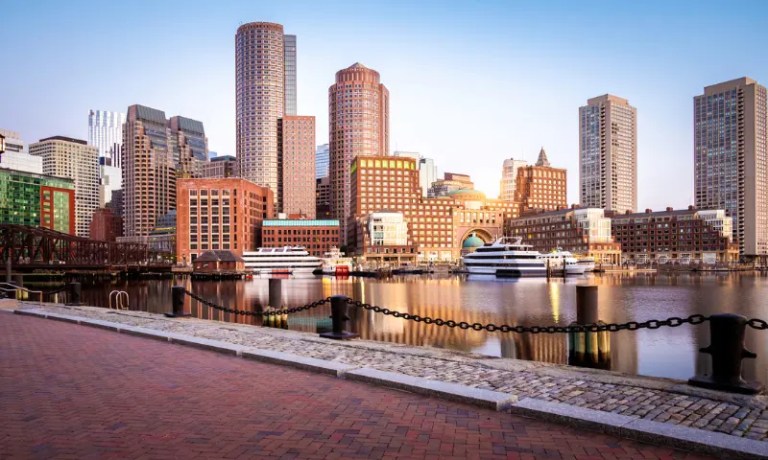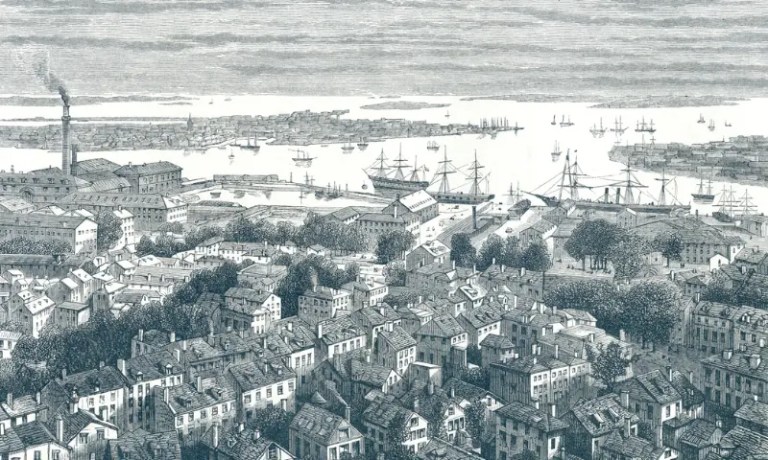The real cost of bottled water.
See how our bottleless water coolers compare.
Areas served
Offer a more sustainable solution for cleaner, better-tasting water on demand.
Fast, efficient, and reliable ice and water machines with advanced filtration.
Bottomless bubbles with built-in filtration for your modern workplace.
Better water makes better coffee. Give your people great-tasting coffee from best-in-class brewers.


Today, Boston sources its water from the Quabbin and Wachusett Reservoirs, which supply a combined 200 million gallons of water daily. But, as The Standells song goes: Boston has “dirty water.” Residents couldn’t agree more, and complain of medicinal, rotten egg, earthy tasting water. The Boylston Street Main, the Beacon Street Main, and the Wachusett Reservoir were all built before 1900, and like many older cities, much of Boston’s original cast iron water infrastructure is still in use. These pipes are prone to corrosion and biofilm contamination from chemical reactions, which create clusters of pipe deterioration and bacteria along the inside of the pipe.
To combat the corrosion and biofilm contamination, municipal water departments add high levels of chlorine, which give Boston tap water a medicinal taste and odor. Although the government continues to monitor and treat water pollutants, reports show that old pipes may compromise Boston water quality with harmful contaminants including lead.
The history of Boston is filled with the constant struggle to provide enough quality water to a continuously growing population. The story begins in 1623 when Reverend William Blackstone became the first settler to drink Boston water from “The Great Spring” on the Shawmut Peninsula.
The Great Spring provided Boston drinking water for over 2 centuries. In the 1800s, the city population ballooned, and residents had to look beyond The Great Spring. City planners began to pull Boston tap water from the Jamaica Pond using wooden pipes, which offered minimal pressure and would eventually rot, leak, and split. By the 1830s, Boston grew even more, and so too did the demand for water. Urban developers turned to an upland source of water that did not require filtration, and in the 1840s, they created the Lake Cochituate Reservoir from Long Pond.
Within two decades, Lake Cochituate had difficulties supplying enough water, especially during the summer, and the Boston water quality did not meet safety standards by 1980. The resulting Metropolitan Water Act of 1895 called for a new water source from the Wachusett Dam at the Nashua River. The city went on to build the Quabbin Reservoir at the Swift River. At its completion in 1946, the 412-billion-gallon reservoir represented the largest man-made reservoir in the world devoted solely to water supply.
Talk to a Boston Culligan Quench water expert to find the best water solution for your space.
See how our bottleless water coolers compare.
Backed by 85 years of Culligan expertise, Culligan Quench has focused exclusively on providing businesses with the highest quality filtered water. This commitment to doing one thing well has made us the trusted water authority for over 75% of the Fortune 500. We offer the best bottleless water coolers, ice machines, sparkling water dispensers, and coffee brewers to fit any workplace. No matter your location, company size, or industry, we have a filtered water solution that is right for you
Play videoProudly providing businesses with clean, filtered drinking water in the greater Boston Metro Area.
| Mon: | 8 AM – 8PM |
| Tues: | 8 AM – 8PM |
| Wed: | 8 AM – 8PM |
| Thur: | 8 AM – 8PM |
| Fri: | 8 AM – 8PM |
| Sat: | Closed |
| Sun: | Closed |
Your local Culligan Quench team in Boston knows the area’s unique water quality. Schedule a quick call with one of our water experts, and we’ll connect you with personalized service tailored specifically to your zip code.
Manager, Sales (Northeast)
Vice President, Operations
Senior Vice President, Care and Field Service
Vice President, Service (East)
Yes, Boston tap water is considered safe to drink and consistently ranks among the cleanest urban water supplies in the U.S. The Massachusetts Water Resources Authority (MWRA) conducts rigorous daily testing and complies with all EPA and Massachusetts Department of Environmental Protection standards.
For commercial properties, however, internal plumbing systems—especially in older buildings—can affect water quality by introducing contaminants like lead. Many Boston offices choose to install point-of-use filtration systems or provide bottled water to ensure the highest quality and taste for employees and guests.
Regular water testing and filtration can improve workplace health, reduce complaints, and help protect break room equipment like coffee machines and ice makers.
No, Boston’s water is naturally soft. Sourced from protected reservoirs in central Massachusetts, it contains low levels of calcium and magnesium, which are the primary minerals responsible for hard water.
Soft water offers several benefits to commercial properties:
For Boston-area businesses, soft water translates to lower maintenance costs and longer appliance life.
As of the most recent reports, Boston tap water has *non-detectable or very low levels of PFAS (per- and polyfluoroalkyl substances), well below state and federal limits. The MWRA tests regularly for PFAS and publishes results to ensure transparency.
That said, PFAS are an emerging concern nationwide, and proactive businesses in industries like healthcare, education, and tech are beginning to install certified PFAS filters to reduce any potential long-term exposure for employees and visitors.
If you’re managing a commercial property and want to be proactive, consider a NSF-certified filter for PFAS reduction at water stations or break room sinks.
Boston tap water itself is free from lead because it is sourced from protected reservoirs and thoroughly treated to meet rigorous water quality standards.
However, lead can sometimes be found in older plumbing systems, particularly in buildings constructed before 1986 when lead pipes were still common.
Businesses, especially in older office buildings or historic properties, are encouraged to test their water regularly and consider installing point-of-use water filters to ensure that their water remains safe for employees and visitors.
Over 120,000 companies, big and small, trust Culligan Quench for cleaner, safer, and great-tasting water.
Ready to upgrade
your water?Get matched with the best water, ice, sparkling water or coffee machine for your workplace.
Take our quiz